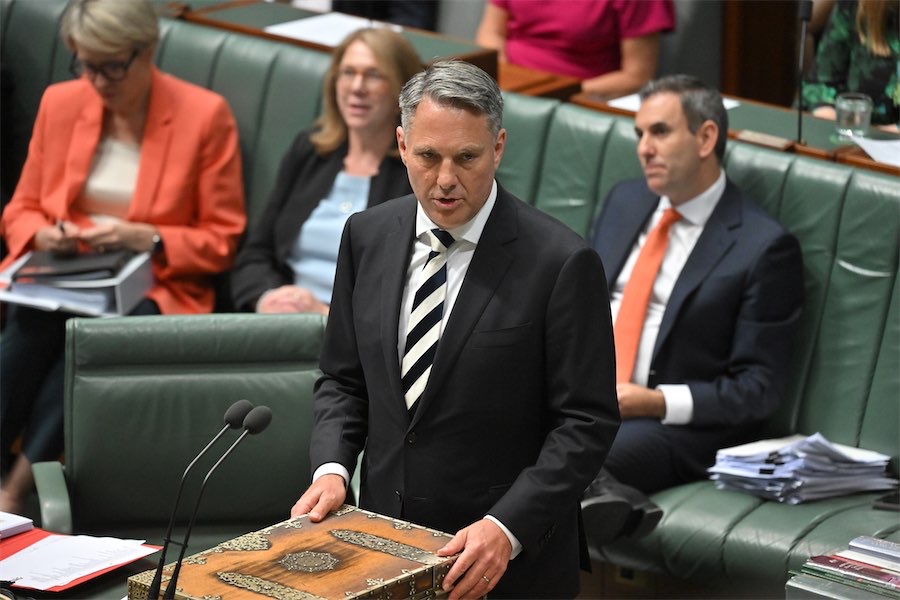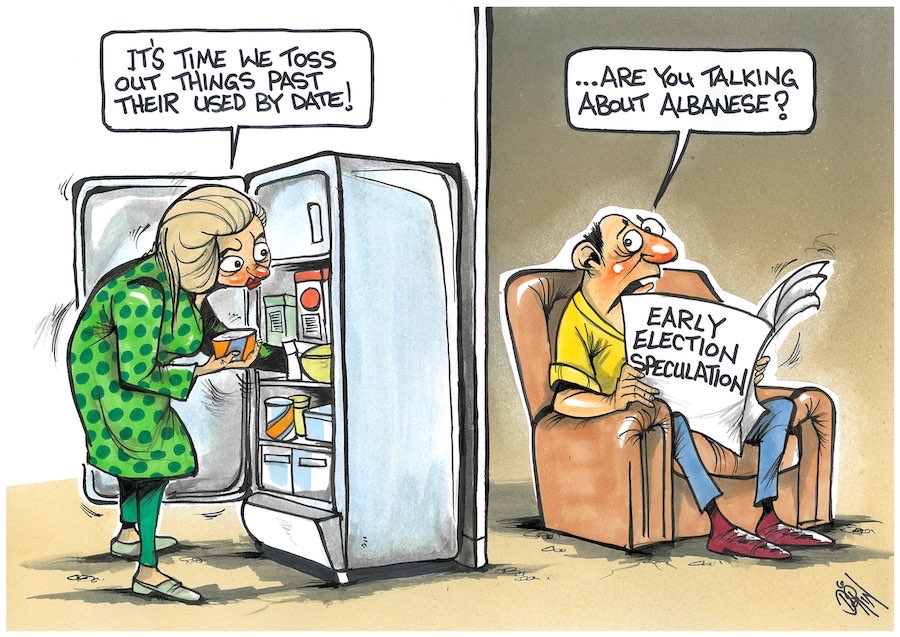
“Over the next 15 months, leading into the next ACT election, the Greens will need to illustrate that they are their own party with a voice distinguishable from their Labor coalition partners,” writes MICHAEL MOORE.
IT’S not just the Greens in the federal parliament that seek to distinguish themselves from Labor. Greens’ backbenchers in the ACT Legislative Assembly are making their presence felt.
Jo Clay and Johnathan Davis recently issued media releases to challenge the positions taken by their Labor coalition partners.
Over the next 15 months, leading into the next ACT election, the Greens will need to illustrate that they are their own party with a voice distinguishable from their Labor coalition partners.
Clay, for example, has attacked the government over its approach to infill. Apparently, the government has been counting “knockdown and rebuilds” in its infill quotas in order to meet the agreed 75 per cent target.
In her attack, describing the government approach as “creative accounting”, Clay argued the “ACT government has a commitment to build at least 70 per cent of new dwellings within the ACT’s existing urban footprint… this is in the Parliamentary and Government Agreement and the ACT Planning Strategy”.
For the Greens, this policy does not go far enough. Clay points out “we’re calling for at least 80 per cent of new dwellings to be built within our existing footprint, with a view to no more urban sprawl”.
Her reasoning is “to deliver enough additional housing supply in existing urban areas so that less greenfield development is required”.
Perhaps the Labor side of the government has seen the folly of such a strident policy. The benefit of such a policy goes to the surrounding areas of NSW, which will see a boom in free-standing houses. It is already obvious that commuters are taking advantage of building in places such as Queanbeyan, Jerrabomberra, Googong, Yass and Bungendore.
Many of these homeowners work in Canberra and commute. Some people already travel daily from as far away as Braidwood. How does this help the environment?
The ACT Treasurer and Chief Minister, Andrew Barr, surely recognises the failure of this policy in financial terms. The revenue from land sales and ongoing income from rates goes across the border. The long commutes by people who wish to have a free-standing home will simply consume so much more fossil fuel than if they were able to have a similar home within the ACT.
This Greens policy is socio-economically regressive. Those who can afford a free-standing home will still be able to make this choice. It is those who struggle to be able to meet mortgage payments that will initially move across the border.

THE other Greens MLA seeking to separate his party from the Labor-Greens government is Johnathan Davis. He released an exposure draft of a bill to place significant restrictions on rental properties. Referring to earlier reforms, he said: “Now, the ACT Greens want to address out-of-control rent prices, with a two-year freeze on rent increases and then a 2 per cent cap on rent increases thereafter”.
Davis argues: “Canberra is one of the most expensive places to rent in the country,” and “more than 30 per cent of Canberrans rent, with many Canberrans in severe rental stress”.
This is an appalling situation. However, this sort of strident legislation distracts from the failures of the Labor-Greens government in providing adequate social housing.
“For too long property investors have been prioritised above the needs of renters”, argues Davis. He considers that the Greens’ “proposed legislation will also eliminate a loophole that allows existing rent controls to be overridden by tenancy agreements. It will also prevent landlords from hiking rents between tenancies at the same property”.
This legislation can easily backfire. Many landlords in Canberra are public servants and self-funded retirees who have invested in rental properties as a supplement to their superannuation. The picture of the voracious, greedy and uncaring landlord does not necessarily apply in the ACT.
For these small investors each increase in the land rates or land taxes imposed by government eats away at the savings they have made to assist in their retirement. Similarly, the most recent hikes in mortgage rates have a direct impact on their retirement income.
These pieces of proposed legislation have serious flaws. However, they certainly help raise the profile of Greens’ backbenchers and play a role in separating the Greens from their Labor government partners.
Michael Moore is a former member of the ACT Legislative Assembly and an independent minister for health. He has been a political columnist with “CityNews” since 2006.
Who can be trusted?
In a world of spin and confusion, there’s never been a more important time to support independent journalism in Canberra.
If you trust our work online and want to enforce the power of independent voices, I invite you to make a small contribution.
Every dollar of support is invested back into our journalism to help keep citynews.com.au strong and free.
Thank you,
Ian Meikle, editor





Leave a Reply